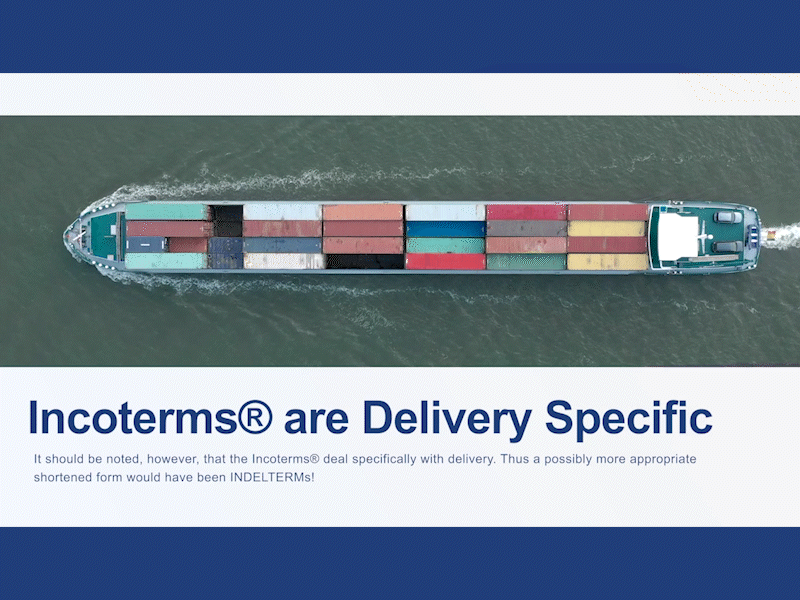Course 7: Export Legal Considerations
Module 3: The Contract of Sale/Purchase
Module Rating
Module 3 of 5
~45 minutes
4 Topics
Multiple Assessments

This is the third free module of a comprehensive course covering export legal considerations. In this module we will be exploring the nature and scope of an export purchase and sale. Covering guidelines for structuring contracts for the sale of tangible goods internationally, based on the UN Convention of Contracts for the International Sale of Goods, also known as CISG. We will also be covering considerations when contracting for the sale of intangibles internationally. The module concludes the topic with insights into protecting intellectual property rights in the context of international sales, as well as the legal challenges posed by electronic commerce in the context of international sales. Click the icon below to get started on this free module.
Who is this Module for?
Businesses & Organisations
looking to potentially expand their knowledge on contracts of sale/purchase in the context of international trade.
Governmental Organisations
that help facilitate or consult businesses on international trade.
Established export businesses
with intellectual property concerns for entering a new export market.
Individuals
looking to start trading in foreign markets.
Individuals & Students
who want to learn more about the export landscape, particularly in the Southern African region.
This module serves as an essential role in your understanding of pivotal export legal considerations in international trade, with a particular focus on contracts of purchase and sale. It starts with a breakdown of a contract of sale/purchase, covering items that can be traded which includes items that are not currently in existence. This topic also delves into tangible and intangible goods/services and how differing country laws and jurisdiction may impact a contract of sale/purchase. The concept of uniformity in law is taken further, with an introduction to the United Nations Commission on International Trade Law (UNCITRAL) and how the UN Convention for the International Sale of Goods (CISG) came to be. The topic concludes with a breakdown of the four parts of the CISG and how they apply to contracts of sale/purchase.
The next topic further explores the role of the CISG, going into the most prevalent of the 101 articles on the application of rules and related content from the CISG. This makes important distinctions what constitutes a sale between two parties, what types of payment qualify and how they must be represented in the contract of sale/purchase. There are also important distinctions made between the application of the articles of CISG, covering cases where CISG is not applicable. Another important consideration is the application of the CISG articles in sales that are not part of a signatory country and how the articles may be leveraged to improve the robustness of contracts of sale/purchase regardless of jurisdiction. This is a perfect segway into the next topic, which looks at the formation of contracts for the international sale of goods.
This topic, as mentioned above, explores the formation of contracts under the CISG, and outlines the respective duties of the seller and buyer in accordance with the CISG. Provided the previous topics were completed, the learner should have a clear understanding of the role played by the CISG. Carrying on this topic, we cover the formation of a contract of sale/purchase and how, despite the need for uniformity, the contract does not need to be in a written format, as verbal contracts can exist, provided there is a testimony of witness evidencing its existence. This topic also explores the various parameters of a contract of sale/purchase, such as when an offer becomes effective and when the withdrawal of an offer occurs.
There are also important distinctions made between the application of the articles of CISG, covering cases where CISG is not applicable. Another important consideration is the application of the CISG articles in sales that are not part of a signatory country and how the articles may be leveraged to improve the robustness of contracts of sale/purchase regardless of jurisdiction.
The final topic covers the nuances of international sale/purchase contracts and the protection of intellectual property. Which includes the various mechanisms available to an exporter for the protection of intellectual property. Which can be a difficult topic to deal with when you consider the international trade landscape, varying country laws and jurisdiction.
Topic 1: The applicability of the UN Convention on the International Sales of Goods (CISG) to international sales/purchases
Topic 2: The role of the CISG Convention in International trade
Topic 3: The formation of contracts for the international sale of goods
Topic 4: International sales/purchase contracts and the protection of intellectual property
This is the third module in a series of five to form a comprehensive course covering all the aspects of a contract of sale/purchase in international trade. Every course and subsequent module has been developed and curated by the International Trade Institute of Southern Africa and Trade Forward Southern Africa. The entire training course is free of charge and can be completed by individuals and organisations alike. This module and subsequent course plays an essential role in developing a comprehensive understanding of international trade. If you know anyone that would be interested, share this module with them using the link below. We would also love your feedback, so drop us a review once you have completed the module.






